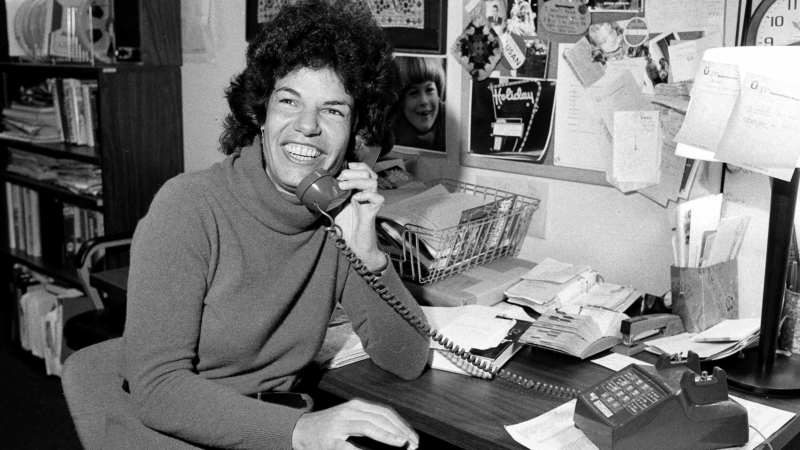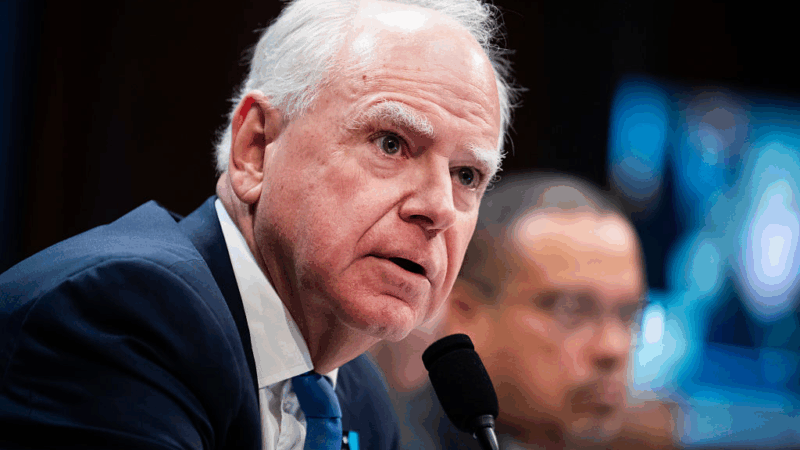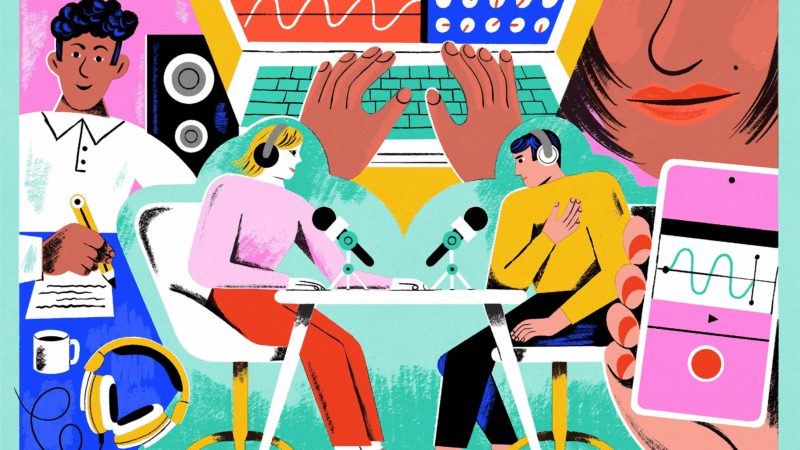Opinion: Susan Stamberg gave NPR its voice
We are here — and I mean on the air with you today — because of Susan Stamberg. There are of course others who helped turn the idea of National Public Radio into a distinctive sound. But a little over 50 years ago, when Susan’s voice began to crackle into kitchens and cars all over America, the people who heard her didn’t ask, “What’s NPR?” but, “Who is that?”
She was the first woman to co-host a nightly news broadcast, and she didn’t sound like a sonorous news anchor. Susan sounded irreverent, not official. Boisterous, not boring. She was courteous, and often hilarious.
Susan Stamberg gave NPR a voice, and that laugh that could make microphones tremble.
We saluted Susan at NPR — and on this show — when she retired last month. I’m glad she got to hear at least a portion of our gratitude and love before she died this week at the age of 87. Those of us who work here know we stand atop the partnership that Susan and a few other scrappy journalists began more than 50 years ago, with what has become millions of listeners across America.
I’ve been trying to recount all I learned from Susan over the years.
She often reminded me that the most important thing you can do in an interview is to listen. Journalists often try to plot out extensive questions in advance, packed with pertinent facts. But sometimes we’re so eager to get through our questions we neglect to really hear the answers and respond to them.
“You’ve got to be prepared to let all that prep hit the floor,” Susan once told me, “and let the interview go someplace else.”
She also showed us how the best questions can be as short as, “Why?” Or as ingenuously simple as when Susan asked an orchestra conductor, “Don’t your arms ever get tired?”
And Susan showed us all that for a news program to become a companion in people’s lives, it has to try to play all the notes in the human symphony, high and low; dark and light; and you play them with style. You can pack all the important facts into a story and a show, but if you don’t hold the interest of listeners, they won’t stay with you long enough to hear any of it.
When NPR was a set of little-known initials, Susan Stamberg gave this place personality.
I find it telling that the recorded voice in the elevators here at NPR headquarters is Susan’s. She continues to tell us which way is up.
If you loved ‘Sinners,’ here’s what to watch next
So you loved best picture nominee Sinners. What should you watch next? We asked our audience to share their recommendations. They suggested Near Dark, The Wailing and other vampire horror films.
U.S-Israeli strikes continue across Iran, Iranian drones hit Azerbaijan
The U.S. and Israel said they conducted new strikes inside Iran overnight, targeting ballistic missile launchers. Iran claimed it struck a U.S. oil tanker in the northern Persian Gulf.
In lawsuit, Minnesota accuses Trump administration of ‘weaponizing’ Medicaid funding
The federal government said the state should do more to fight fraud and is holding back funds. Minnesota officials say the attack is unfair as the state's fraud rate is well below national averages.
Wall Street is betting on tariff refunds after Supreme Court ruling
When the Supreme Court struck down many of President Trump's tariffs, it left importers wondering how long they'd have to wait to get their money back. Hedge funds are offering to help out.
Announcing the 2025 NPR College Podcast Challenge Honorable Mentions
Here are some of the best entries in NPR's 2025 College Podcast Challenge.
When ICE came, Minneapolis created underground health networks. Should other cities?
The Trump administration's immigration crackdown in Minneapolis forced some families into hiding and catalyzed informal medical networks to deliver critical health care services inside homes.







